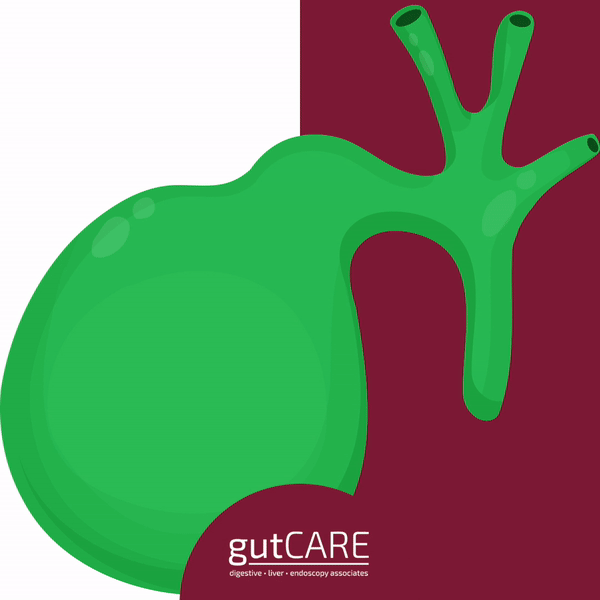Gallbladder

The gallbladder’s function is to store bile produced by the liver. The main function of bile is to help the intestine digest fat. The liver produces more than enough bile for normal digestion every day, and there is no need for additional bile to be stored in the gallbladder. The liver is the main organ for metabolism, while the gallbladder is only a storage organ. Hence, removing the gallbladder does not affect the metabolic functions in the liver, nor does it increase the burden on the liver. Studies have shown that the vast majority of patients lead normal lives without a gallbladder.
Normally, the gallbladder contracts during a meal to secrete bile into the intestine and help digest the fat in the meal. After the gallbladder is removed, the main difference is that bile now goes directly from the liver to the intestine in a continuous manner instead of as controlled secretions during meals. This may result in one of two scenarios: inadequate bile in the intestines after a fatty meal, or the opposite case of bile secretion without fat to digest. Both scenarios can result diarrhoea, the former from fat that remains in the intestines and passes out as ‘fatty’ diarrhoea, and the latter from bile acids which irritates the intestine directly.
After surgery, the priority is to make a full recovery and resume normal activities, whilst watching out for delayed surgical complications which can present itself after discharge from hospital. Patients should also keep an eye out for the following symptoms: abdominal pain, fever, vomiting and jaundice, as they may signal a surgical complication, and should be told to your doctor as soon as possible. Bloating is common and is best treated by light exercises such as walking. Diarrhoea is also commonly experienced in the initial month after surgery as the intestines require time to adapt to digesting food without a gallbladder. To minimize this, consume a low-fat diet and take frequent meals in smaller portions rather the usual 3 large daily meals.
1-2% of patients develop chronic diarrhoea after gallbladder removal. This is thought to be caused by bile acids directly irritating the intestines. It has no long-term health effect as fat digestion is still adequate. Nonetheless, the symptom can be irritating and affect one’s quality of life. A low-fat diet can be helpful. However, most patients will benefit from specialized medication to bind the bile acids so that they do not cause diarrhoea.
While most episodes of diarrhoea are mild and may occur for a short duration of time, you can visit GUTCARE clinic in Singapore and consult with our team of specialists for persistent and serious symptoms. These include moderate or severe abdominal pain or tenderness, bloody diarrhoea, and moderate or severe dehydration. Our gastroenterology clinic provides a full spectrum of services for digestive and liver disorders, such as advanced endoscopy and colonoscopy, with patient-centered care. Contact GUTCARE clinic to book an appointment for consultation today.




